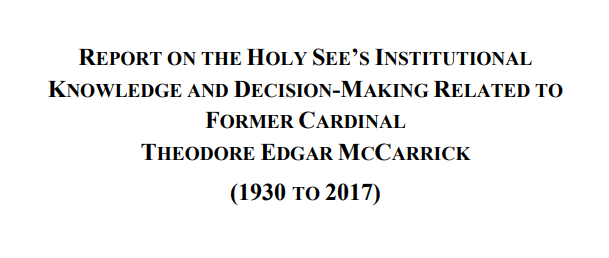Those who walk away from McCarrick

I didn’t get involved in yesterday’s Twitter argument about Ursula Le Guin’s Hugo award winning short story, “Those who walk away from Omelas”.
I will chime in to say that if you told me “Omelas” was the fictionalized version of the McCarrick Report, I would believe you. I find the parallels eerie, a world where loads of people knew what Uncle Ted did, but absolutely no one ever walked up to the man and punched him in the face. Lots of people dissimulated in their own minds, a few came to terms with it, and some just walked away from being Catholics because of it. But no one, even some of those with the power to do so, ever stepped in and ended it.
I have no idea what message Le Guin wanted to send by writing that story. However, I have said before and I’ll say so again that speculative fiction is always more about the present than the future, and the effect is unintentionally magnified by an author trying harder to be literary.

The whole world lost its mind over sex in the seventies, and since experience has shown us that isolated incidents are never isolated incidents, I believe that stories like that of Moira Greyland indicate that the world of sci fi fandom was just as messed up as Uncle Ted’s beach house in that era.
I have every reason to expect that people knew what happened to Moira Greyland, and did nothing, because that is what happened in the Catholic Church, the Boy Scouts, Hollywood, and really everywhere else too. Everyone involved at the time seems to have implicitly accepted that it wasn’t worth burning the whole Catholic Church to the ground over the misdeeds of Uncle Ted. At least that is how they acted.
I have no idea what story Le Guin thought she was writing, but I think I have a pretty good idea of the story she ended up with, and it looks to me like it was very much about the state of the world when it was written.
Comments ()